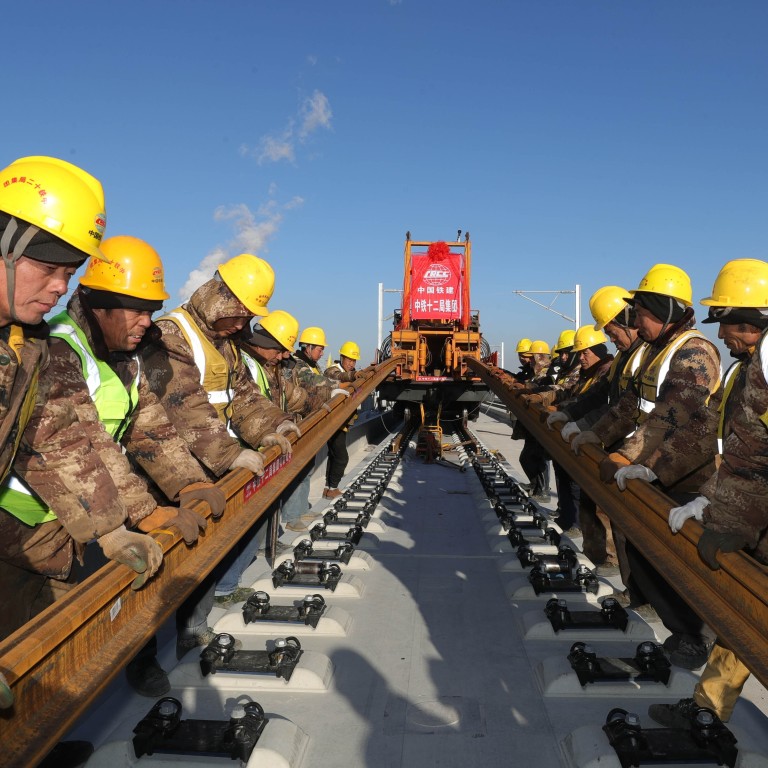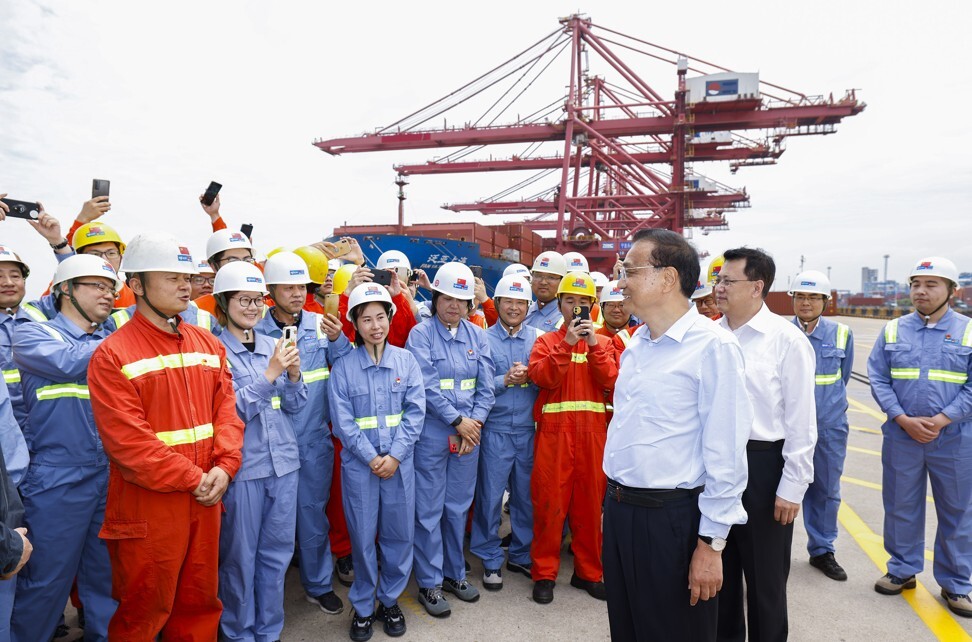
For China, excess economic stimulus not as risky as tapering stimulus too quickly, economists say
- Soaring commodity prices raise questions about whether China created too much demand for raw materials by overcompensating for economic damage from pandemic
- But analysts say higher prices were the direct result of surging post-pandemic demand, coupled with supply shortages of crucial commodities such as steel
China’s economy is not at risk of overshooting on economic stimulus, despite the recent strong rise in commodity prices, and any attempts to aggressively taper economic support would be more detrimental than helpful, according to economists.
The PBOC will step in if inflation becomes really high – say, close to double digits – but it will be mindful not to step on the brakes too soon
Economists have also downplayed the risk of sustained broad-based inflation, calling the recent rise in prices a short-term phenomenon caused by China’s economic recovery and the comparison with the low base of depressed prices caused by the pandemic shock a year ago.
It is also unlikely that China’s central bank, the People’s Bank of China (PBOC), will react to current conditions with a knee-jerk tightening of monetary policy, according to Rabobank China economist Raphie Hayat.
“On the inflation front, I still think the rise in inflation is short-term, rather than long-term, in nature. For one, it is a base effect – prices declined at the height of the [coronavirus] crisis in China last year, which means any move back to normal prices is high in percentage terms.”
Bigger state-owned companies have been able to pass on the higher cost of raw materials to their customers, but smaller manufacturers do not have this pricing power, and so many have had to stop accepting new orders.
A survey this month of nearly 100 steelmakers, including leading producers such as Hebei Iron & Steel and Shandong Iron & Steel, indicated that they planned to raise steel prices by more than 10 per cent.
The price of copper recently hit a record of US$10,000 a tonne, while iron ore has been trading above US$200 a tonne – the highest in 10 years. The price of zinc also hit a three-year high two weeks ago.

ING senior commodity strategist Wenyu Yao said these higher prices were a direct result of recovering post-pandemic demand, which has been accelerated by Chinese and US economic stimulus measures, coupled with supply shortages of these commodities.
“I don’t think China is overstimulating this year,” she said. “In fact, aggregated credit growth is slowing amid its [debt] deleveraging efforts, although monetary policy remains prudent as the PBOC has promised ‘no U-turn’ [in its economic support measures].”
That said, persistently high commodity prices would be worrisome because they have the potential to derail China’s economic recovery, Yao said.
Chinese authorities have been quick to clamp down on speculative trading in commodities in recent weeks.
Last week, the Chinese State Council said authorities were paying closer attention to the impact of high prices and were deploying a two-pronged approach to stabilise markets, increase supply and enhance supervision.
The authorities cited excessive speculation as a major reason for price rises in the domestic commodity market, although global prices have also played a part.
The NDRC said it would step up the supervision of futures and spot markets to detect abnormal trading and malicious speculation. On Tuesday, it widened its approach, saying it would also tighten controls over agricultural commodities such as corn.
On Monday, Premier Li Keqiang said the government would strive to prevent rising commodity prices from being passed on to consumers.

The government’s tougher approach spooked futures and spot commodities markets, with prices starting to fall, commodities analysts at S&P Global Platts said on Tuesday.
Chinese steel rebar prices have been on a downward slide, dropping 4 per cent earlier this week.
Even with inflation throwing a wrench in the works, economists do not see China speeding up its very gradual tightening of monetary policy, as it seeks to ensure that the economy remains on track to hit the central government’s gross domestic product growth target for this year.
“I think inflation concerns are secondary from the central bank’s perspective. Don’t forget, the official policy objective of China’s central bank is not maintaining price stability, but rather to maintain the stability of the value of the currency, and thereby promote economic growth.
“The PBOC will step in if inflation becomes really high – say, close to double digits – but it will be mindful not to step on the brakes too soon, especially if it expects inflation to go down in a couple of months.”

